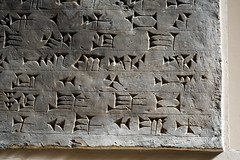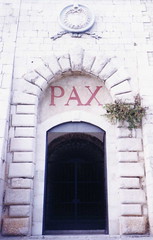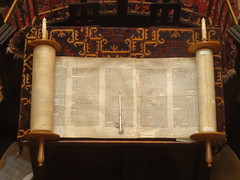AP World History Chapter 20 Flashcards
World Civilizations: The Global Experience AP Edition
Online questions
| 3959673534 | The European slave trade out of Africa vastly expanded when... | ...sugar plantations were established on the Atlantic islands and in the Americas. | 0 | |
| 3959673535 | The large numbers and high volume of Africans in the slave trade was necessary because... | ...the mortality of slaves was high and their birth rate was low. | 1 | |
| 3959673536 | The largest number of enslaved Africans were sent to work in which of the following industries in the 1450-1750 era? | sugar | 2 | |
| 3959673537 | What was one of the distinguishing features of slavery in Africa? | the enslavement of women and children for domestic labor | 3 | |
| 3959673538 | What factor allowed Europeans to join in and profit from the commerce in slaves so quickly in the 16th century? | the well-established patterns of slavery in Africa prior to the arrival of European traders | 4 | |
| 3959673539 | With regard to the slave trade and slavery in Africa, contacts with the Europeans... | ...increased violence and the disruption within African societies. | 5 | |
| 3959673540 | What processes occurred within Africa during the early modern period as a result of the influences of Islam and Western civilization? | -political reorganization, both in Saharan and sub-Saharan Africa -integration of African cultures and communities into the New World economy -increased religious conversion, both to Islam and various forms of Christianity -significant and permanent social change | 6 | |
| 3959673541 | The Portuguese solidified commercial and cultural contacts in Africa through the creation of factories, which were... | forts and trading posts with resident merchants. | 7 | |
| 3959673542 | Intensive production of which commodity greatly increased the importance of the slave trade for Portugal and Spain? | sugar | 8 | |
| 3959673543 | All of these areas were major importers of African slaves EXCEPT... | British North America. | 9 | |
| 3959673544 | Which European nation became a major player in the slave trade after seizing the important factory center at El Mina in 1637? | Holland | 10 | |
| 3959673545 | What occupations did slaves perform throughout African societies prior to the inception of the European and Islamic slave systems? | -servants and concubines -administrators -agricultural laborers -soldiers | 11 | |
| 3959673546 | Increased European presence and influence led to the rise of several new states in west and central Africa that based their power on control of which two commodities? | slaves and firearms | 12 | |
| 3959673547 | On Zanzibar off the east African coast, Swahili, Indian, and Arab merchants adopted the European slave plantation system to cultivate which commodity crop? | cloves | 13 | |
| 3959673548 | Which Nguni chiefdom's powerful military and political structure became a source of inspiration and fear for surrounding communities between the eighteenth and nineteenth centuries? | Zulu | 14 | |
| 3959673549 | Slaves in the New World confronted difficulties forming families due to which circumstances? | -family members faced with the threat of separation at any time -difficult and exhausting working conditions -short and uncertain life spans -general shortages of female slaves | 15 | |
| 3959673550 | Although similar in many ways in their relationship to the emerging world system, which African circumstances differed sharply from those prevalent in Latin America during the early modern period? | Africa remained independent of outside political control, and most cultural development was autonomous. | 16 | |
| 3959673551 | Which African kingdom first converted to Christianity through the efforts of Portuguese missionaries? | Kongo | 17 | |
| 3959673552 | What patterns of contact, established by the Portuguese, became standard for all European powers throughout the early modern period? | -predominantly commercial relations -alliances with local rulers -systems of fortified trading stations -combinations of force and diplomacy | 18 | |
| 3959673553 | What type of African slaves was most prevalent in the trans-Saharan slave trade? | young women | 19 | |
| 3959673554 | An Indies piece was... | ...a Spanish term for the commercial value of a healthy male slave. | 20 | |
| 3959673555 | Internal instability and competition for European and Islamic trade led to the rise of which professional cohort throughout central and west Africa between 1500 and 1750 C.E.? | soldiers and military commanders | 21 | |
| 3959673556 | Which new empire, based on the Gold Coast, used a golden stool as its symbol of power and cultural unity? | Asante | 22 | |
| 3959673557 | What forces encouraged Bantu tribes to move southward toward the southern tip of Africa throughout the eighteenth century C.E.? | -diverse patterns of political organization that led to the splitting of lineages to form new villages, which in turn encouraged southward migration -increased competition for land due to population growth -desire to acquire access to fertile coastal regions suitable for herding and grazing -competition over access to Portuguese and other European coastal trading stations | 23 | |
| 3959673558 | The Middle Passage was... | ...the traumatic slave journey across the Atlantic from Africa to the New World. | 24 | |
| 3959673559 | The most successful example of African-American slave resistance and rebellion occurred in... | ...Suriname. | 25 | |
| 3959673560 | Nzinga Mvemba brought which kingdom to Christianity? | Kongo | 26 | |
| 3959673561 | A central element to Portuguese production was... | slavery | 27 | |
| 3959673562 | The first slaves were brought to Portugal in... | 1441 | 28 | |
| 3959673563 | Between 1450 and 1850, _______ slaves were shipped across the Atlantic. | 12 million | 29 | |
| 3959673564 | The Caribbean islands were dedicated to _______ production. | sugar | 30 | |
| 3959673565 | By the seventeenth century, ________ was the largest supplier of slaves. | west central Africa | 31 | |
| 3959673566 | Which of the following aided Africa in regaining some of its lost population during slave trade? | the introduction of new crops | 32 | |
| 3959673567 | Some historians argue the profit of the slave trade inadvertently led to the... | industrial revolution | 33 | |
| 3959673568 | In the Muslim faith,... | ...the enslavement of nonbelievers was acceptable. | 34 | |
| 3959673569 | During the seventeenth century, the kingdom of Dahomey created an autocratic empire due to access to... | firearms | 35 | |
| 3959673570 | Who preached a jihad against the Hausa kings? | Usuman Dan Fodio | 36 | |
| 3959673571 | A Boer refers to... | ...a Dutch farmer in South Africa. | 37 | |
| 3959673572 | Shaka of the Zulus was assassinated in... | ...1828. | 38 | |
| 3959673573 | Which of the following is NOT true regarding the Middle Passage? | The Middle Passage usually stripped slaves of their religious beliefs. | 39 | |
| 3959673574 | The Portuguese were the first Europeans to establish a slave trade. | true | 40 | |
| 3959673575 | A saltwater slave refers to a native Africa slave. | true | 41 | |
| 3959673576 | The Asante people used peaceful tactics in order to expand their empire. | false | 42 | |
| 3959673577 | Virginia and the Carolinas imported more slaves than the Caribbean and Brazil. | false | 43 | |
| 3959673578 | The Europeans abhorred African art. | false | 44 | |
| 3959673579 | Control of the slave trade generally reflected the politics in Europe. | true | 45 | |
| 3959673580 | France was the key proponent for the end of slave trade. | false | 46 | |
| 3959673581 | The Boers embarked on the Great Trek in order to be free of government interference. | true | 47 | |
| 3959673582 | The slave trade negatively impacted both the east and west coasts of Africa. | false | 48 | |
| 3959673583 | The slave population in the southern United States never grew due to climate. | false | 49 |













































